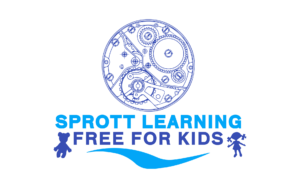The Great Screentime Debate: Playing Vs. Learning
By Richard / February 23, 2023 / Uncategorized / 0 CommentsCan interactive learning be a game? Can games be educational? Over the years I have heard many cases made for and against video games. I myself enjoy video games from time to time. So let’s dive into the concept of video games and education.
Level Up
The autistic brain likes patterns and regularity. Daily routine and known activities provide a feeling of comfort and safety. This is feasibly part of why autistic children are drawn to video games more than neurotypical children (Deweerdt, 2018). In the realm of video games, everything is clearly defined. To get to this place you must level up your character, and to level up your character you need to complete various challenges and quests. If the autistic brain is naturally drawn to the pattern and regularity that is found in video games, shouldn’t we try to capitalize on that?
I think this is a bit of a “no-brainer.” In my work as a paraprofessional working with teens with autism, I got to see firsthand how beneficial games could be. For one of my students who was learning non-verbal communication skills, we had flashcards with different people showing different emotions. Sometimes we would look at a card and he would determine what the person was feeling based on the facial expression. Other times we would place a few different cards on the table and he would look for an emotion named by myself or the teacher. Now imagine if this was an interactive game on a tablet. One that would evaluate the answers for accuracy and as the player got more correct answers they would be shown pictures with less dramatic facial expressions. This means that despite our natural bends, individuals with autism, myself included, can practice and eventually master reading social cues.
The Game of Real Life
Another aspect of my time in the classroom was working with the students to practice various life skills. From cleaning up the classroom to loading and unloading the dishwasher. With one student we even worked our way up to loading and starting the washing machine and dryer. Then folding the cleaned laundry.
Can we create a game that teaches these skills? Certainly, we can. With my own twins, I have found educational games on their tablets, that we will play to practice various skills. Puzzle apps help them practice fine motor skills as they drag pieces into place. They must observe and interpret the shapes of each piece to line them up. Another game has them find objects using a verbal cue. This helps to strengthen their verbal comprehension and visual comprehension skills as they look for the object that the app named. Since we began using these educational apps, my twins’ speech has grown drastically. I feel as though the repetition and the rewards they earn in the game have been immensely powerful in motivating them to learn.
Virtually Real
Virtual reality and augmented reality are very quickly growing aspects of video games. Some augmented reality applications allow the tablet to be used to virtually place an object in front of the child. Google even has a feature that allows your phone to virtually place an animal in front of you and let you walk around it. Looking through your phone’s screen it appears as if the animal is standing right in front of you.
Let’s just think for a moment. If a child with autism was able to use a tablet to virtually explore a grocery store on a scavenger hunt for certain items wouldn’t that help them learn to shop for groceries? What about a game that let them virtually operate a washer and dryer, a dishwasher, or a refrigerator. The possibilities are endless. Almost every skill for professional, personal, social, and educational success can be adapted into an interactive application. Becoming an extremely powerful tool for autistic children and teens to prepare for life.
References:
Deweerdt, S. (June 22, 2018). Can science-based video games help kids with autism? Science. Retrieved January 31, 2022, from https://www.science.org/content/article/can-science-based-video-games-help-kids-autism
